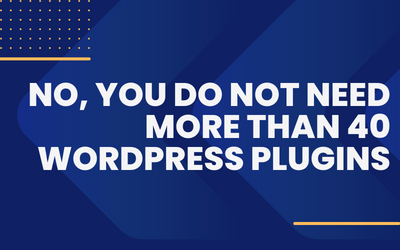WordPress has become one of the most widely used content management systems on the internet, powering over 40% of all websites. It has come a long way since its humble beginnings in 2003 as a simple blogging platform.
WordPress was originally created by Matt Mullenweg and Mike Little as a fork of another blogging platform called b2/cafelog. From there, it quickly evolved into a powerful content management system that could be used for more than just blogging.
This year WordPress celebrates twenty years and the community is celebrating across the world doing events like Meetups (both in-person and virtual) and other social events. You can see a list of events here.
There is also some special merch that was launched to help everyone in the community to celebrate the 20th Birthday of WordPress. Get yours from WordPress Merch Store:


One of the key reasons for WordPress’s success is its open-source nature. This means that anyone can contribute to the project and create plugins and themes that can be used by anyone who uses the platform. This has led to a massive ecosystem of developers creating new and innovative features for WordPress.
Over the years, WordPress has continued to evolve and improve. It has become more user-friendly and more powerful, making it the perfect choice for everything from small personal blogs to large corporate websites.
One of the most significant changes to WordPress in recent years has been the introduction of the Gutenberg editor. This new editor has replaced the old visual editor and has brought with it a new era of block-based editing. This means that users can now create more complex layouts and designs without having to know how to code.
The future of WordPress is bright, and there are many exciting developments on the horizon. The platform is set to continue evolving, and we can expect to see even more powerful features and tools being added in the coming years.
However, as with any software, there are also challenges ahead. WordPress faces ongoing security concerns, and developers must work hard to keep the platform secure and up-to-date.
In conclusion, WordPress has come a long way since its inception in 2003. It has become one of the most widely used content management systems in the world, and its future looks bright. However, it is up to us as users and developers to ensure that we continue to use the platform responsibly and securely.











